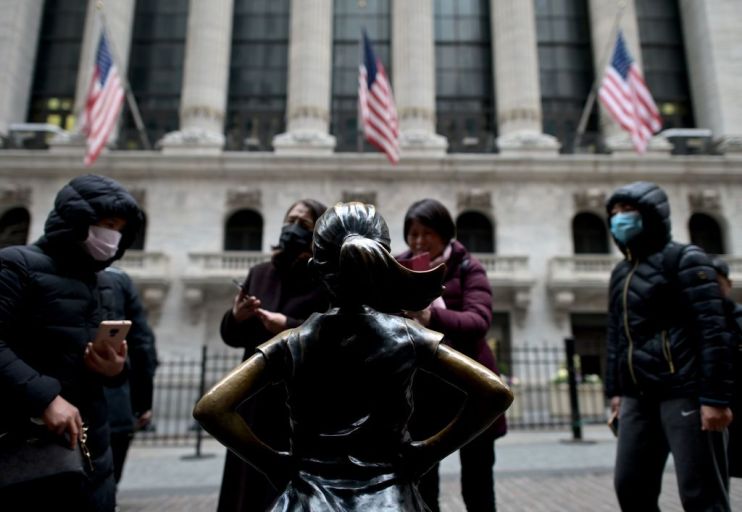Federal Reserve slashes interest rates over coronavirus fears

The US Federal Reserve has slashed interest rates by 50 basis points – 0.5 percentage points – in an emergency response to the economic risks of coronavirus.
Fed chair Jay Powell said rate-setters had witnessed the “broader spread of the virus” and “come to the view that it is time for us to act in the support of the economy”.
The move came as a surprise to the markets and was the first time the Fed has trimmed rates between scheduled meetings since the 2008 financial crisis. It lowered the bank’s interest rate range to between one and 1.25 per cent.
US stocks at first jumped in reaction to the move but quickly fell into the red. The S&P 500 was last down 1.1 per cent, while the Dow Jones was 1.3 per cent lower and the Nasdaq had dropped one per cent.
Seema Shah, chief strategist at Principal Global Investors, said markets had quickly “decided that really for this kind of event, central banks aren’t able to be much help”.
Explaining the Fed’s decision in a press conference, Powell said: “In the last couple of weeks we’ve seen a broader spread of the virus.” He added: “We saw a risk to the outlook for the economy and chose to act.”
However, Powell said the economic effects of coronavirus would be temporary and the fundamentals of the US economy remained strong. “We will get to the other side of this and I fully respect it will return to solid growth,” he said.
The coronavirus outbreak began in China in December. It has since spread to more than 60 countries and killed more than 3,000 people, mostly in China.
Global stock markets suffered their worst five days since the financial crisis last week as investors scrambled to price the effect of a slump in demand and disrupted supply chains.
“We do recognise that a rate cut will not reduce the rate of infection, it won’t fix a broken supply chain, we get that,” said Powell, but he added that he does think it will help boost the economy. “It will help boost household and business confidence,” he said.
Fed criticised
Allianz’s Mohamed El-Erian suggested that markets’ jumpy reaction to the emergency rate cut was because the Fed did not communicate its intentions clearly.
He added that the statement’s wording on the economy meant there was a risk “that the cut will be viewed [as] markets again forcing the hand of a lagging” Fed.
Europe’s markets reacted more positively to the move. The pan-European Stoxx 600 was 1.5 per cent higher towards closing time, Germany’s Dax was up 0.8 per cent higher and the UK’s FTSE 100 was up one per cent.
US President Donald Trump has long called for the Fed to lower its interest rate, but demanded that the central bank cut further.
“The Federal Reserve is cuting [sic] but must further ease and, most importantly, come into line with other countries/competitors,” he tweeted.
“We are not playing on a level field. Not fair to USA. It is finally time for the Federal Reserve to LEAD. More easing and cutting!”
US treasury secretary Steve Mnuchin said he supported the cut, calling it a “non-political” decision. Appearing before a US Congress committee, Mnuchin said the outbreak was evolving rapidly.